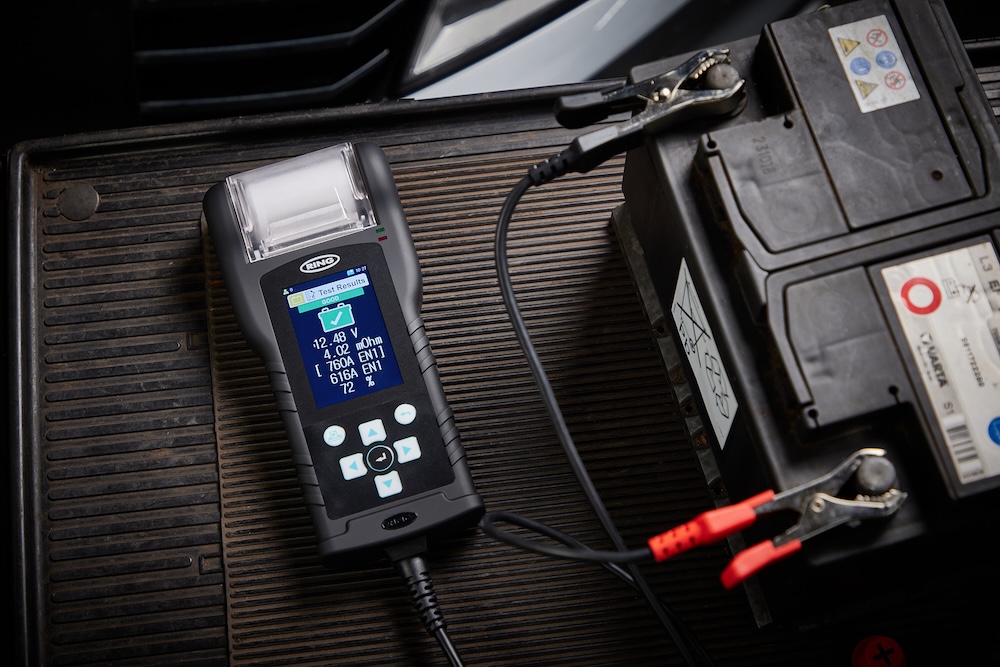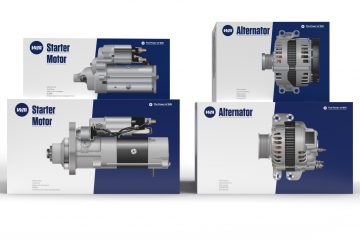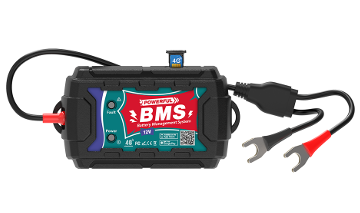Ring’s new battery analyser (RBAG950) can provide a complete health check of the battery and electrical systems in both 12V and 24V vehicles, including motorcycles, cars and vans.
Suitable for 12V lead acid, AGM, EFB, gel and LiFePO4 lithium, as well as start/stop batteries, the RBAG950 is a multi-functional unit able to test the battery, alternator, starter and vehicle earth, via its intuitive graphical interface. The results can then be printed using the built-in thermal printer, viewed on other devices by using the removable SD card, or even through the QR code.
The battery analyser test simply carries out a battery health check and gives the user a reading detailing the state of the battery, whereas the alternator test, for both normal and smart 12V/24V alternators, will detect battery charging problems by checking if the alternator voltages fall within normal operating ranges.
Potential for RBAG950
In a similar vein is the starter test for both 12V and 24V vehicles, which checks for potential starting problems by measuring battery voltage drop during engine cranking. The final test the RBAG950 analyser can undertake is the earth test to check that the earth connections between battery, engine and chassis are in good condition.
Helpfully, there is memory storage for up to 80 results and it will also give an instant voltage reading, which will be displayed on the screen when powered up.

The RBAG950 can also diagnose if a battery is faulty or not. As is known, if a battery falls below 12.5V to 12.4V, then battery will be in depletion mode and will have damaged the plates. So, even though the battery is not that low, the damage done is permanent. Yet, if the battery is at 12.5V, it can be charged and will work effectively, so there is a known tipping point for battery charging states.
Therefore, Ring suggests that technicians should check every battery they get supplied to make sure it is above 12.5V.
To ensure this product can be used effectively, Ring has supplied it with a three-metre cable, so that users can easily reach the battery wherever it may be in the vehicle. It also means that the technician can sit in the front seat, start the ignition and also be holding the units, therefore becoming a one-person job. Previously, units needed someone to rev the engine while the other technician saw what happened on screen, which cost workshops valuable lost time.




You must be logged in to post a comment.